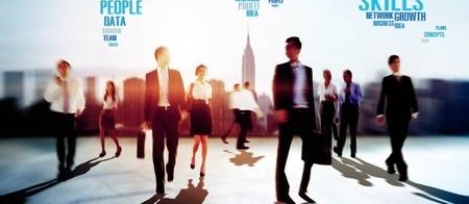October 26, 2016
Larger employers much more optimistic about post-Brexit outlook than SMEs 0
 A gap is emerging between UK businesses regarding the impact of Brexit, with large businesses significantly more optimistic about the future than their small business counterparts, joint research by NGA Human Resources (NGA HR) and its SMB division, Moorepay suggests. Six in ten (59 percent) respondents working for large businesses expect Brexit to have a positive impact on their business, but only 35 percent of SMBs share this view. In fact, a quarter of (25 percent) SMB employees in the UK actually believe their situation will worsen after the UK has left the European Union. Looking ahead, the majority (79 percent) of larger UK businesses are ready to address the challenges and exploit the opportunities resulting from Brexit, whereas just over half of small businesses (56 percent) feel the same. Asked about their wish list for a post-Brexit economy, all UK businesses agree that access to the single market is the biggest advantage of the EU membership and one that both large businesses (64 percent) and SMBs (54 percent) would like to retain. Additionally, opening up trade to new countries and markets is seen as the main advantage of Brexit for both large (70 percent) and smaller businesses (54 percent), followed by freedom from EU laws and regulations (both 48 percent).
A gap is emerging between UK businesses regarding the impact of Brexit, with large businesses significantly more optimistic about the future than their small business counterparts, joint research by NGA Human Resources (NGA HR) and its SMB division, Moorepay suggests. Six in ten (59 percent) respondents working for large businesses expect Brexit to have a positive impact on their business, but only 35 percent of SMBs share this view. In fact, a quarter of (25 percent) SMB employees in the UK actually believe their situation will worsen after the UK has left the European Union. Looking ahead, the majority (79 percent) of larger UK businesses are ready to address the challenges and exploit the opportunities resulting from Brexit, whereas just over half of small businesses (56 percent) feel the same. Asked about their wish list for a post-Brexit economy, all UK businesses agree that access to the single market is the biggest advantage of the EU membership and one that both large businesses (64 percent) and SMBs (54 percent) would like to retain. Additionally, opening up trade to new countries and markets is seen as the main advantage of Brexit for both large (70 percent) and smaller businesses (54 percent), followed by freedom from EU laws and regulations (both 48 percent).




































